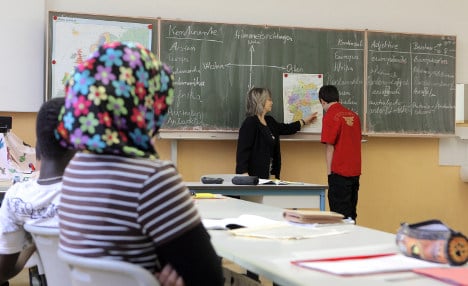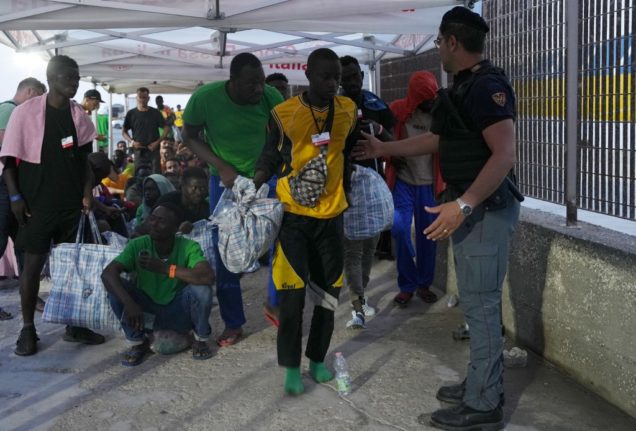The report, drawn up by the international NGO Open Society Justice Initiative (OSJI), noted that children of immigrants are being segregated from native-born German pupils on the putative grounds that their German language skills are inadequate for regular classes.
“In fact, although they speak German as a second language (in most cases), their language skills generally are adequate for regular classes, but serve as a proxy for discrimination on the basis of ethnicity or other suspect criteria,” the OSJI reported.
“The discriminatory practices stigmatise migrant students, undermine their potential to integrate and participate fully in German society, and violate Germany’s obligations to prohibit discrimination,” the report concluded.
Serdar Yazar, of the Berlin Brandenburg Turkish association (TBB), which helped gather data and parents’ testimonies for the report, was unsurprised by its conclusions, but said that active segregation was a new development.
“This is a new tendency,” he told The Local. “We’ve had a lot of negative references for children of immigrant background who want to go to other schools, but in the last two or three years we’ve had more and more cases of separated classes.”
He cites one particularly well-known case of a primary school in the Kreuzberg district of Berlin.
“There was a parents’ initiative from German parents, who said, ‘We’re worried because our children won’t get a good education, and will have difficulties with the German language. We live in an area with a large number of children with immigrant background. So we have to find a system where there are so-called immigrant classes, and classes with native German speakers.’ And the school directors bowed to their wishes,” Yazar explained.
The NGO found that school directors were creating separate classes – “with preferential conditions, better teachers, and additional learning projects” – specifically to attract ethnic German parents.
The report added that school administrators were colluding with teachers to keep classes closed to children of immigrants, in order to “guarantee” elite groups to ethnic German parents.
The report also made clear that this segregation was helped by Germany’s three-tier education system, which funnels children into either a Gymnasium, Realschule, or Hauptschule straight after primary school.
This system was criticised by the UN two years ago as encouraging “de facto racial segregation.” “The system is still very non-transparent,” said Yazar.
“What we find is that children with immigrant background often don’t find a place in the popular, attractive schools, apparently because of lack of capacity. And a lot of people don’t believe that. There’s a very strongly-felt discrimination, and sometimes evidence for it appears.”
Yazar also thinks the problem is not just confined to Berlin. “I know cases from North Rhine-Westphalia, and I know a few cases from Hamburg too,” he said.
The NGO called on the German government to expand its discrimination laws to include public education, and on teaching authorities to provide additional support for children of immigrant backgrounds to ensure they are integrated into regular classes.
The report was commissioned by the UN for its 106th Human Rights Committee session in Geneva, which runs until November 2.
The Local/bk



 Please whitelist us to continue reading.
Please whitelist us to continue reading.
Member comments